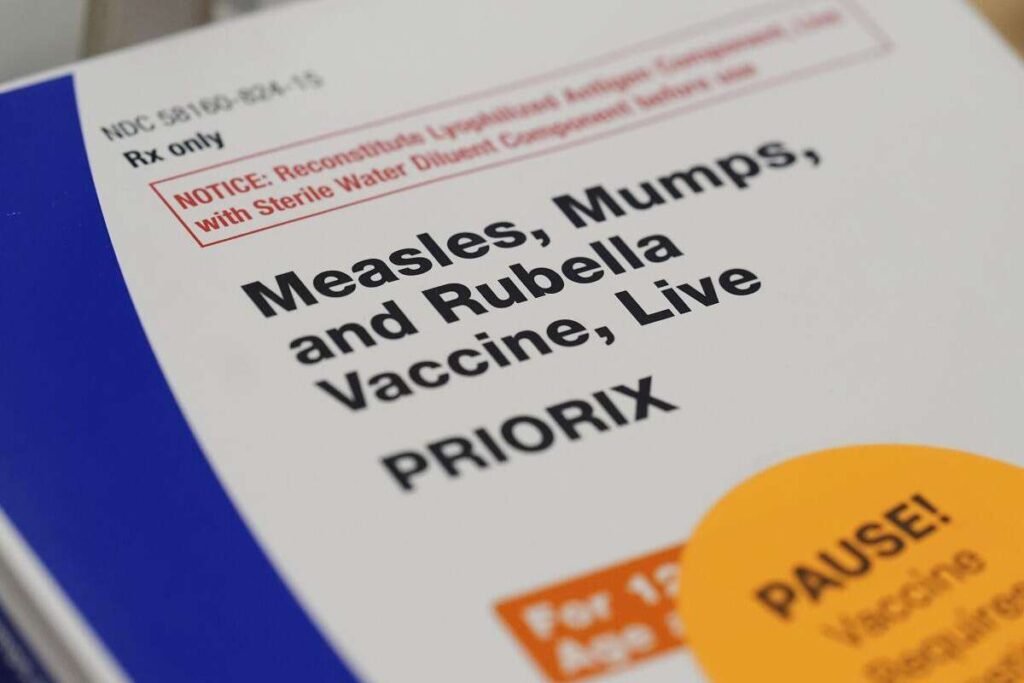Health officials confirmed Thursday that a school-aged child in Los Angeles County has died from a rare and fatal complication stemming from a measles infection acquired during infancy.
The child, whose identity has not been released, contracted measles before reaching the eligible age for vaccination. While they initially recovered from the infection, years later they developed subacute sclerosing panencephalitis (SSPE), a progressive Rare Brain Disorder that is considered a universally fatal complication of measles.
According to Los Angeles County Public Health, SSPE can emerge anywhere from two to 10 years after an apparent recovery from measles. The condition gradually destroys neurological function and typically results in death one to three years after diagnosis.
Increased Risk When Measles Occurs in Infancy
While SSPE is rare overall, affecting about one in 10,000 people infected with measles, the risk is dramatically higher for infants. Health authorities estimate that for babies infected before their first birthday, the likelihood may rise to as high as one in 600.
There is currently no cure or effective treatment for SSPE. Symptoms progress over time, often beginning with subtle changes in personality or cognition, followed by seizures, loss of motor control, and ultimately severe neurological decline.
“This case is a painful reminder of how dangerous measles can be, especially for our most vulnerable community members,” said Dr. Muntu Davis, Los Angeles County’s Health Officer. “Infants too young to be vaccinated rely on all of us to help protect them through community immunity. Vaccination is not just about protecting yourself—it’s about protecting your family, your neighbors, and especially children who are too young to be vaccinated.”
Officials Stress Importance of Vaccination
Measles remains one of the most contagious viral diseases. The Centers for Disease Control and Prevention (CDC) reports that the virus can linger in the air for up to two hours after an infected person coughs or sneezes, with unvaccinated individuals facing a 90% chance of becoming infected if exposed.
Routine vaccination with the measles, mumps, and rubella (MMR) vaccine is recommended beginning at 12 to 15 months of age, with a second dose typically administered between ages 4 and 6. Vaccination coverage has historically kept measles at bay in the United States, but outbreaks have resurfaced in recent years as vaccination rates have declined in some communities.
Public health officials are urging residents to review their immunization records and ensure they and their children are up to date. They also encourage parents of infants, who are not yet old enough for vaccination, to be particularly cautious about potential exposure to measles.
Community immunity, or herd protection, plays a critical role in protecting those who cannot be vaccinated, such as newborns and individuals with weakened immune systems. Experts emphasize that widespread vaccination is key to preventing both acute infections and long-term complications like SSPE.
A Tragic Reminder of Measles Risks
The child’s death underscores the lasting risks associated with measles, even years after an initial recovery. While the disease is sometimes dismissed as a common childhood illness, health experts stress that complications, including pneumonia, encephalitis, and SSPE, make measles a serious public health threat.
Los Angeles County Public Health has not reported any recent outbreaks of measles in the area but continues to monitor cases closely. Officials reiterated their message that vaccines remain the most effective tool to prevent tragedies like this one.
“This heartbreaking case reinforces why maintaining high vaccination rates is essential,” Davis said. “Measles is preventable, and protecting our community begins with each of us making sure we are immunized.”
Also Read :- Is Your Diet Linked To Your Brain? Try These Brain Boosting Foods For A Healthy Brain









